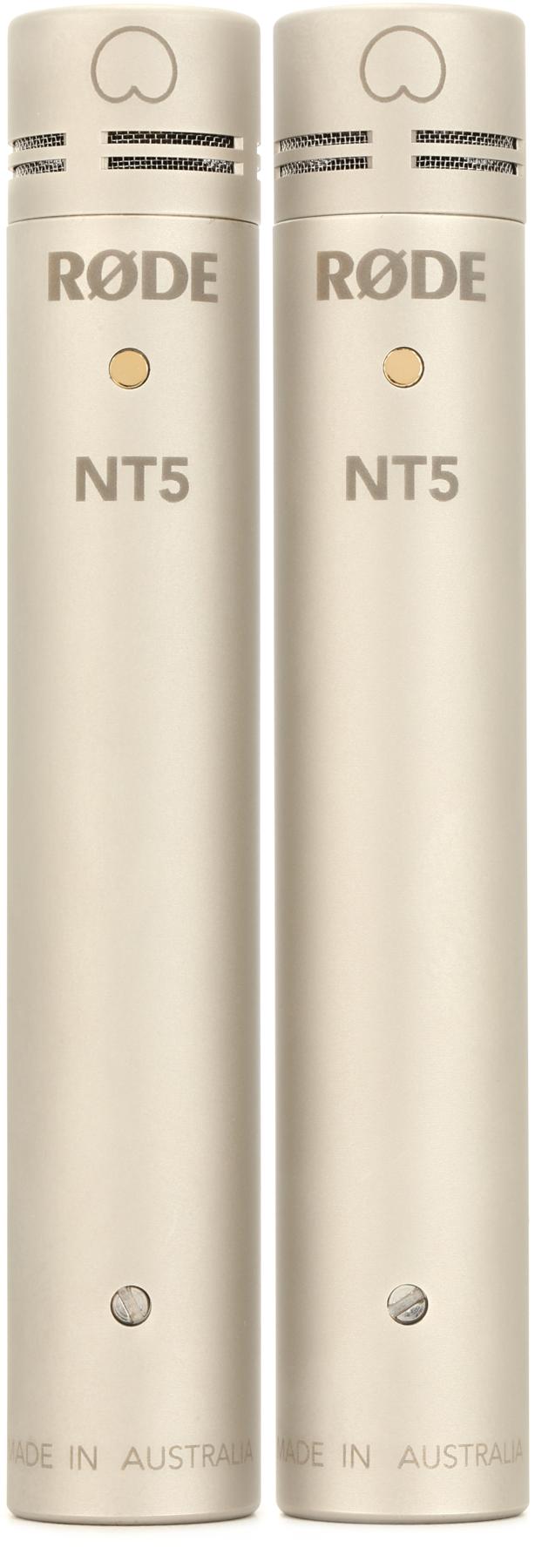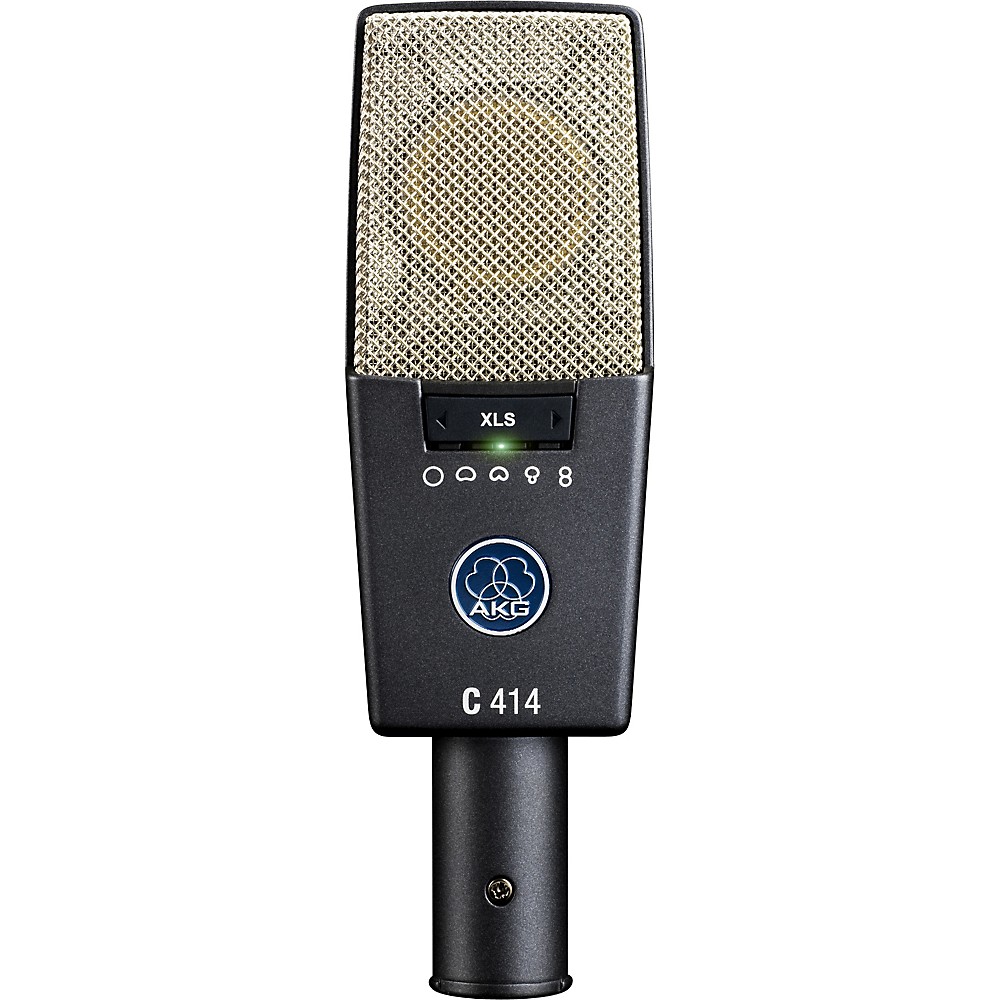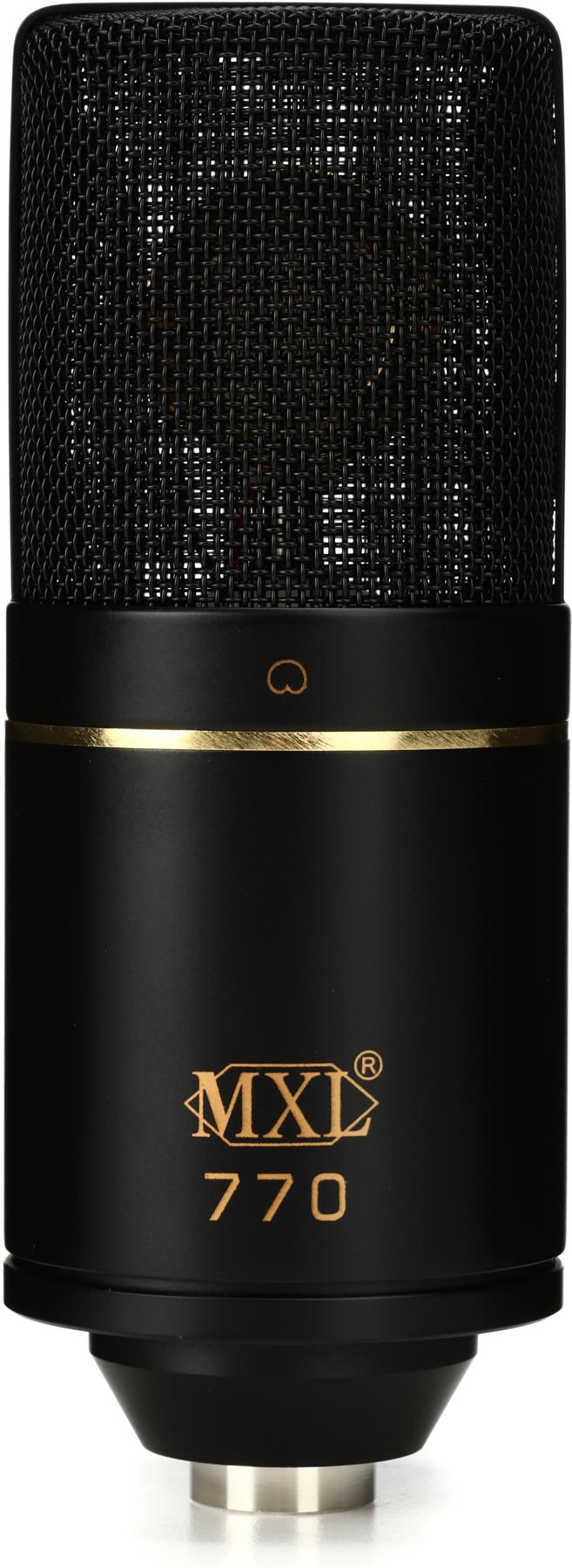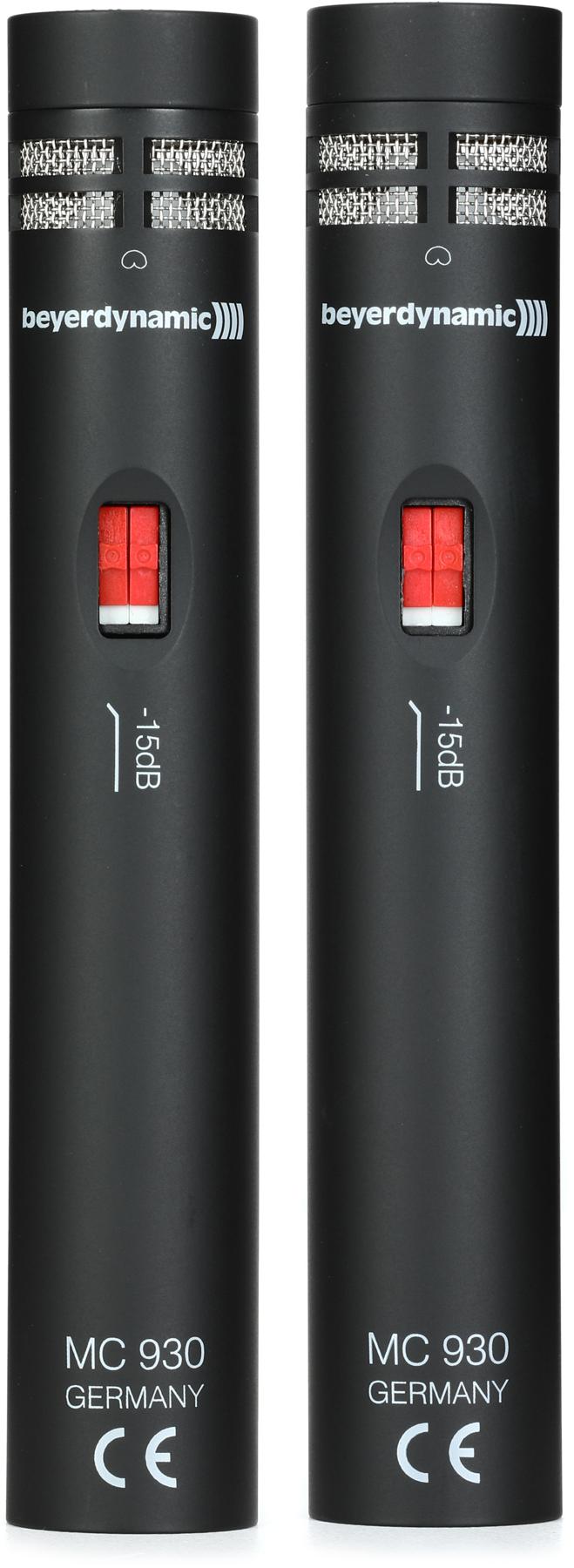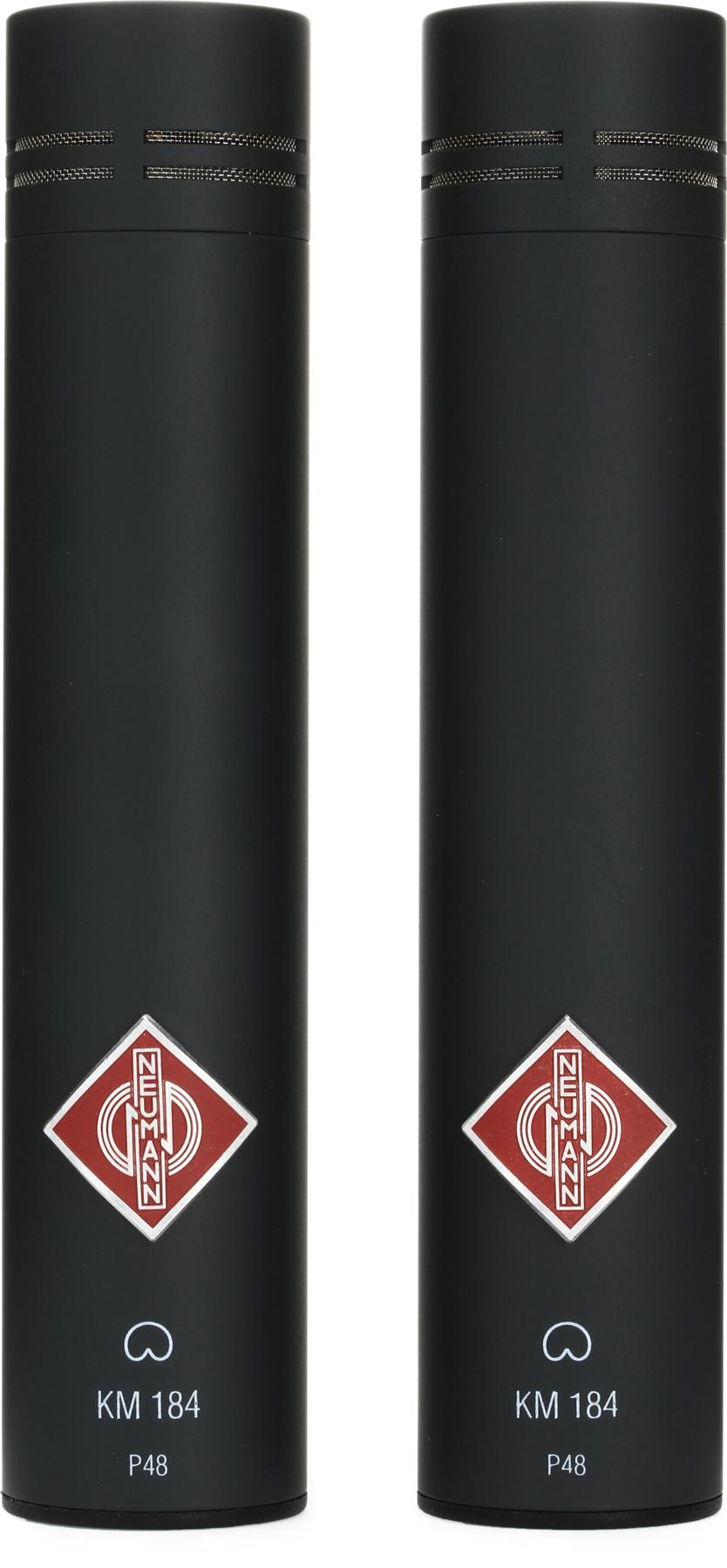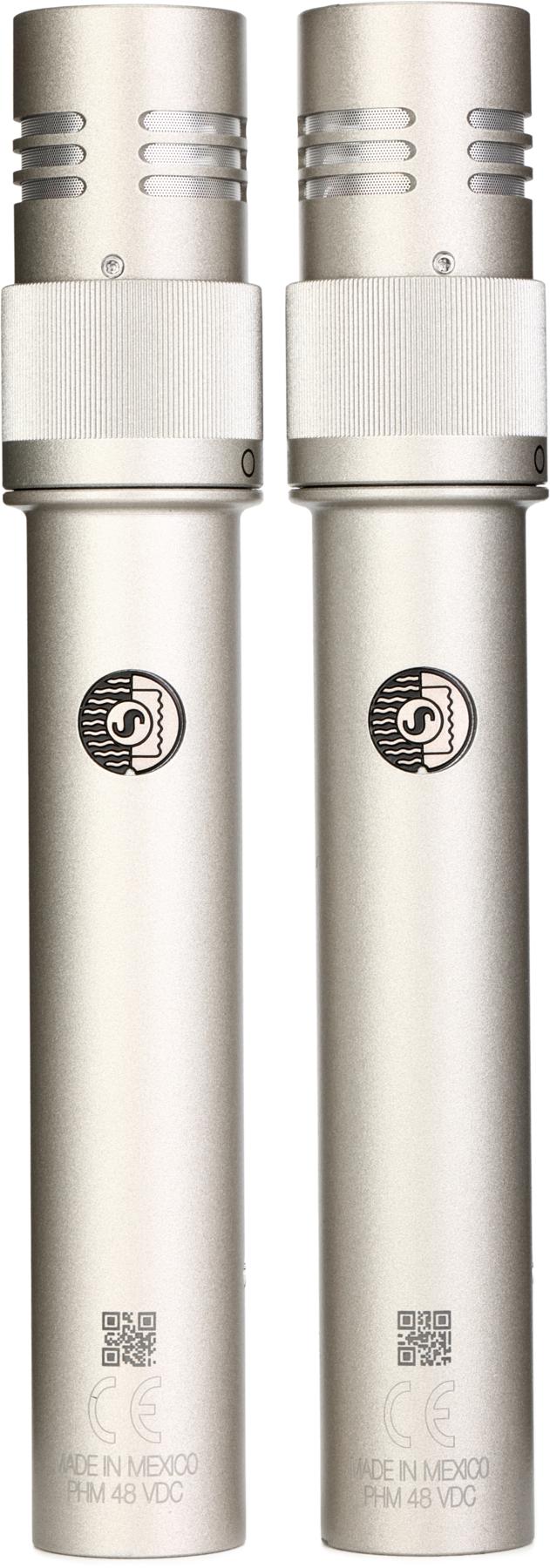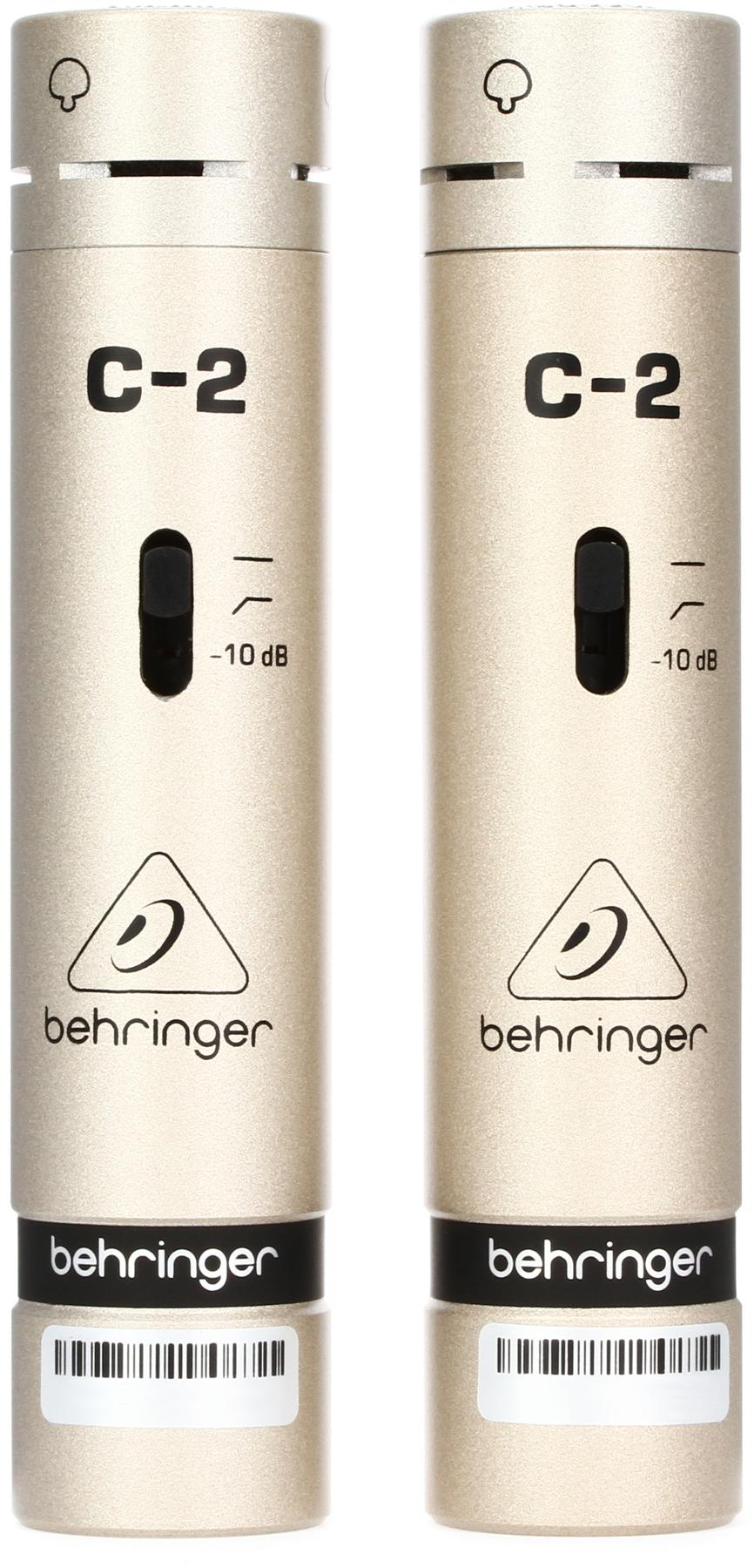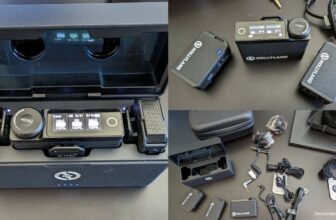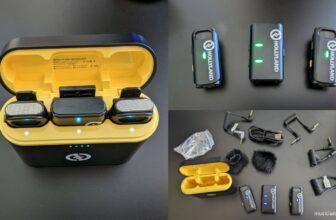The 10 Best Mics for Recording Piano (2024)
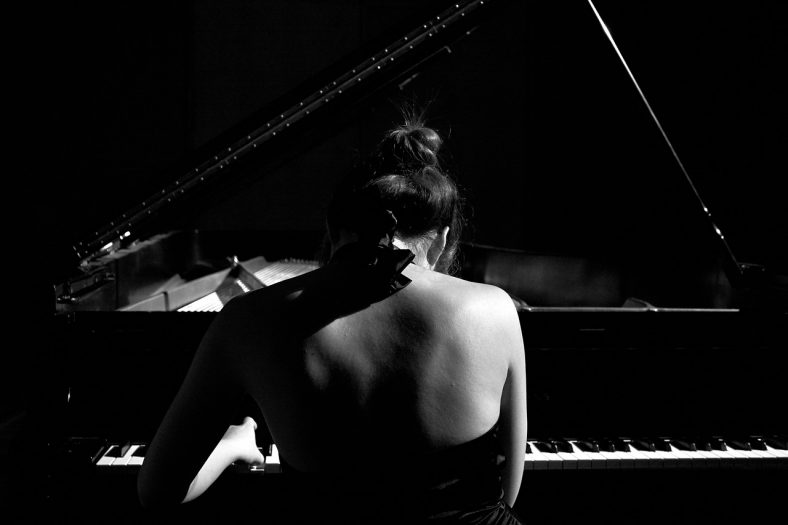
The piano is all about expression and emotion, and it’s essential to choose a microphone that can capture every nuance of the performance. Whether you’re a classical pianist, a jazz enthusiast, or a songwriter, finding the right mic is the key to unlocking the magic.
The key benefit of these mics is their ability to capture the rich and nuanced tones of the piano, ensuring that every note is heard with crystal clear clarity. But it’s not just about clarity, it’s also about capturing the character and warmth that the instrument has to offer.
My main recommended condenser microphone is the Rode NT5. These small-diaphragm microphones are affordable and provide excellent studio-quality sound, making them a popular choice for both project and professional studios.
As for my budget recommendation, the MXL 770 is a top-selling large diaphragm condenser mic that provides balanced bass response and high-end clarity, making it great for vocals, pianos, stringed instruments, and percussion. Its low-frequency roll-off reduces unwanted rumble, and the low-noise FET preamp with balanced output offers a wide dynamic range.
The mics on this list vary in price, from affordable entry-level options to high-end professional-grade equipment. But regardless of the price, each one has its unique strengths and features that make it stand out from the rest. So let’s explore the world of microphones for recording piano!
Contents
- The 10 Best Mics for Recording Piano (2024) – At a Glance
- 1. Rode NT5 - Matched Pair Compact Condenser Microphones
- 2. MXL 770 Large-diaphragm Condenser Microphone
- 3. Neumann U87 Ai Microphone
- 4. AKG C414 XLS
- 5. Rode M5 Small-diaphragm Condenser Microphone - Matched Pair
- 6. Beyerdynamic MC 930 Small-diaphragm Condenser Microphone - Stereo Set
- 7. Audio-Technica AT2020 Microphone
- 8. Neumann KM 184 MT Stereo Set
- 9. Shure KSM141 Stereo Pair
- 10. Behringer C-2 Matched Studio Condenser Microphones
- Buyers Guide
- FAQs
- Conclusion
The 10 Best Mics for Recording Piano (2024) – At a Glance
Now let’s move on to the full list:
1. Rode NT5 - Matched Pair Compact Condenser Microphones
If you want to capture the true sound of various instruments like pianos, guitars, flutes, violins, saxophones, or drums, the Rode NT5 microphones are perfect for you. I enjoy their warm and full sound quality, and the small-diaphragm condenser design gives an accurate and detailed audio profile. This ensures your recording has that professional-quality sound you’ve been looking for.
If you are struggling with the background noise in your recordings, the Rode NT5 microphones can help. I love their cardioid polar pattern, which focuses on the sound source and reduces ambient noise. These mics are perfect for different recording situations, allowing you to enjoy clear sound without annoying hums and hisses.
Amazing audio quality shouldn’t be expensive, and Rode knows that. They offer the NT5 microphones at a budget-friendly price. I think it’s fantastic that you can get the high-quality audio Rode is known for without spending too much. The mic has a slight boost in the mids, which makes them sound a bit bland. But with their affordable price, there’s nothing stopping you from reaching your studio dreams.
Pros
- Excellent sound quality for various instruments
- Versatile and suitable for live and recording sessions
- Warm and full sound
- Compact, lightweight, and protective carrying case
Cons
- Slight boost in the mids might not be for everyone
- Bright/sibilant sounds may not suit everyone
Specs
- Microphone Type: Small diaphragm condenser
- Mono/Stereo: Stereo Pair
- Polar Pattern: Cardioid
- Frequency Response: 20Hz-20kHz
- Included Accessories: Storage Pouch, Mic Clips, Windscreens
- Requires 48V phantom power
2. MXL 770 Large-diaphragm Condenser Microphone
The MXL 770 Microphone is known for its versatility, as it’s great for recording various sounds like vocals and piano. Its popularity among musicians and recording artists is well-deserved.
The mic offers excellent sound quality at an affordable price. Its low-end roll-off and low-noise FET preamplifier reduce reverberations and noise disruptions, providing listeners with a fantastic audio experience that has a wide dynamic range and balanced sound.
The MXL 770 Microphone isn’t just for music recording and performance; it’s also suitable for broadcasting and podcast production. Its lightweight design, compact size, and high-quality XLR interface make it perfect for streaming and podcasts, capturing each word with precision and clarity.
It is a great mic for the price offered, and the negative parts, like low-quality accessories or not the same quality craftsmanship as higher-end mics, are far from being dealbreakers. If you want a good-quality piano recording for an affordable price, MXL 770 is the ideal choice.
Pros
- Great for budget-conscious musicians
- High-quality sound for vocals, piano, guitar, and ukulele
- Excellent for both studio recording and streaming
- Wide dynamic range with low self-noise
- Balanced bass response with high-end clarity
- Shock mount and carrying case included
- Versatile with adjustable settings (bass roll-off, -10db switch)
Cons
- Shock mount could potentially have some durability issues
- Not as high quality as more expensive microphones
Specs
- Microphone Type: Pressure Gradient Condenser
- Polar Pattern: Cardioid
- Frequency Response: 30Hz-20kHz
- Included Accessories: Shockmount, Hardshell Case
- Requires 48V phantom power
3. Neumann U87 Ai Microphone
As one of the industry-standard condenser mics in recording studios for decades, Neumann U87 Ai Microphone has a large double-diaphragm component, allowing for great flexibility and sensitivity in capturing clear audio. It covers a 20Hz to 20kHz frequency range and can handle up to 127dB SPL without distorting. I appreciate its professional-grade quality, pure sound, and high-end sparkle, making it a top choice in recording studios.
Whether recording a solo artist, a group, or a single instrument, this microphone’s three adjustable polar patterns (omni, cardioid, and bidirectional) let you fine-tune your setup for the best sound. Additionally, it has a 6dB better signal-to-noise ratio than its previous model, ensuring even clearer recordings and adding to its attractiveness.
This outstanding microphone has various helpful features and accessories, like a 10dB pad option, low-frequency roll-off to address the proximity effect, and a 200-ohm impedance rating. It comes with an EA87 Shockmount, windscreen, and cable, all in an elegant wooden storage case for an ideal recording experience.
There is not much to say against this microphone, despite its quite high price. If you have the budget and want the most professional-sounding piano recordings, don’t look elsewhere than Neumann U87 Ai Microphone.
Pros
- Industry-standard microphone
- Warm sound and well-balanced characteristics
- Large dual-diaphragm capsule with 3 selectable directional patterns
- Handles sound levels up to 127dB without distortion
- Preferred studio vocal mic for decades
- Good for band or home studio recordings and single instruments
Cons
- Pricey
Specs
- Microphone Type: Condenser
- Polar Pattern: Cardioid, Omni, Figure-8
- Frequency Response: 20Hz-20kHz
- Included Accessories: Shock Mount, Windscreen, Wood Box
- Requires 48V phantom power
4. AKG C414 XLS
Inspired by the famous AKG C414 B-ULS, the AKG C414 XLS keeps its great sound quality and accuracy for recording different sounds. This microphone is perfect for recording voices and various acoustic instruments, offering clear and precise audio.
The C414 XLS has nine selectable patterns, making it easy to find the best setting for different distances and environments. This flexibility allows you to focus on getting the perfect sound.
What I liked about the C414 XLS is that it has very low noise, making recordings sound great. However, I found that for the best results, you should be 2 to 4 feet away from the microphone, which might not work in some situations.
To reduce unwanted noise and improve sound quality, the C414 XLS comes with three bass-cut filters. These help to lower wind noise and other disturbances. It also has three levels of sound reduction (-6/-12/-18dB) for better control over close recording or very loud sounds. This ensures clear audio, even in difficult environments.
Pros
- Versatile with nine selectable polar patterns
- Low self-noise for clear recordings
- Excellent for piano, acoustic guitars and vocals
- Solid build quality and well-crafted design
- Multiple attenuation levels and bass-cut filters
- Peak hold LED for overload warning
Cons
- May require fairly close proximity to sound source for optimal pickup
Specs
- Microphone Type: Condenser
- Polar Pattern: Omni, Wide Cardioid, Cardioid, Hypercardioid, Figure-8
- Frequency Response: 20Hz-20kHz
- Included Accessories: Stand Mount, Shock Mount, Pop Screen, Windscreen, Carry Case
- Requires 48V phantom power
5. Rode M5 Small-diaphragm Condenser Microphone - Matched Pair
Rode M5 is a set of two small-diaphragm condenser microphones perfectly matched for stereo recording. This pair is designed to record various instruments, from guitars and pianos to strings, woodwinds, and brass. With a stylish black look, they are both attractive and versatile. Made in Australia, they offer surprisingly good-level performance.
These mics have a heart-shaped, unidirectional pattern that isolates sound sources, minimizing noise and increasing accuracy. This makes them great for live performances where clear sound is vital. They can help ensure every note sounds lovely, whether on stage or in the studio.
I enjoy the excellent sound quality and flexibility these microphones offer for different recording scenarios. What makes them special is their outstanding performance at an affordable price. Suitable for beginners and experienced musicians, it became highly popular due to its cost-effective design. It’s nice to find a product that offers both reliability and affordability in a market where quality often means a high price.
Even though it is a great microphone pair, you should not expect the high-quality performance you’d get from higher-end gear. Despite that, the overall excellence of these mics makes them a valuable addition to any musician’s collection.
Pros
- Affordable and good-quality sound
- Solid construction and well-built
- Good for various applications
- Improved audio quality in medium-sized auditoriums
- Low noise and background noise
- Suitable for both live and recording purposes
Cons
- No case included for storage, transportation
Specs
- Microphone Type: Condenser
- Mono-Stereo: Stereo Pair
- Polar Pattern: Cardioid
- Frequency Response: 20Hz-20kHz
- Included Accessories: Windshields, stand mounts
- Requires 48V phantom power
6. Beyerdynamic MC 930 Small-diaphragm Condenser Microphone - Stereo Set
The Beyerdynamic MC930 Microphone Set is perfect for capturing the wonderful harmony of a choir or the powerful sound of an orchestra as well as single instruments like piano, with a wide frequency range of 40 to 20,000 Hz. Its true condenser microphones are specially made for recording large performances, offering great results on various instruments and capturing every detail of the sound.
Enhance your recordings using the MC930 set’s impressive ability to handle high sound pressure levels. Featuring a 15 dB switchable pre-attenuation, these microphones are versatile and perfect for getting the most out of your live performances and installations. I enjoy the adjustable bass roll-off filter that reduces proximity effects, making sure the sound remains clear and sharp in any situation.
The one downside I found was the absence of negative feedback, which might lead to unrealistic expectations for the product. However, creating amazing XY stereo recordings is a thrilling experience with this pair of MC 93 microphones. Along with two EA 19/25 elastic suspensions and two WS 53 windshields, you’ll be ready for any recording task. The sturdy carrying case makes it easy to bring your microphones and equipment to any location without trouble.
Pros
- Great sound quality
- Suitable for various instruments and uses
- High gain before feedback
- Very low self-noise
- High SPL capability 140 dB
- Switchable pre-attenuation 15 dB
- Switchable low-pass filter at 250 Hz
- Exceptional XY stereo recordings
- Nice accessory pack
Cons
- Slightly heavier than some other microphones
- A bit pricey
Specs
- Microphone Type: Small diaphragm condenser
- Polar Pattern: Cardioid
- Frequency Response: 40Hz-20kHz
- Included Accessories: Two elastic suspensions, two windscreens, a transport case
- Requires 48V phantom power
7. Audio-Technica AT2020 Microphone
Audio-Technica AT2020 Microphone features unique side-address technology, making it stand out for home and project studio use. The AT2020 has a special low-mass diaphragm for an excellent transient response, meaning it captures every detail of the sound for clear and precise recordings. Its high-quality sound at a very affordable price, considering its accurate response and sensitivity, is amazing.
The AT2020 is perfect for musicians wanting flexibility, as it can handle high sound pressure levels and offers a wide dynamic range. This allows it to pick up a variety of sounds, from quiet whispers to loud concerts, and accurately reproduces every note, even for the most challenging audio sources.
The mic does not come with many accessories, which is a shame, but I can’t really complain about the price point. Also, the mic picks up the background noise quite a lot, so you have to make your recording room pretty noise-free for recording.
To isolate sounds, the AT2020 has a unidirectional cardioid pattern that picks up sound clearly from the intended source while reducing background noise. It also comes with a 3-pin XLRM connector for easy connection to your audio system. The provided adjustable stand mount and compatibility with 5/8″-27 stands to ensure the mic can be placed perfectly for any recording situation.
Pros
- Great sound quality for the price
- Durable build and visually appealing design
- Good for beginners and amateurs
- Compatible with XLR cable for better durability and sound quality
- High SPL handling and wide dynamic range
- Cardioid polar pattern for sound source isolation
- Flat frequency response for versatile usage
Cons
- XLR cable not included
Specs
- Microphone Type: Large diaphragm condenser
- Polar Pattern: Cardioid
- Frequency Response: 20Hz-20kHz
- Included Accessories: Stand mount, microphone pouch
- Requires 48V phantom power
8. Neumann KM 184 MT Stereo Set
Neumann KM 184 MT Stereo Set offers clear and realistic sound without altering the original audio. Its great sound quality is perfect for recording various instruments like piano, drums, or woodwinds, both for solo artists and groups in any setting. Its design avoids distortion and has consistent directionality at all frequencies.
A standout feature is its low self-generated noise, ensuring clear recordings. It also has excellent noise rejection from behind, so background noises won’t affect the performance, giving amazing audio clarity overall.
Being lightweight and having a compact design, this microphone is perfect for traveling musicians. Its non-reflective matte black finish adds a stylish touch but doesn’t compromise on performance.
The higher price might be a concern for some, but with my thorough research, I found its top-notch sound quality and accuracy make it a valuable investment for many musicians and audio fans.
Pros
- Amazing sound quality
- Ideal for home studios
- Great for acoustic instruments
- Accurate and transparent sound
- Low self-noise
- High SPL capability
- Excellent off-axis sound rejection
- Versatile applications
Cons
- A bit pricey
Specs
- Microphone Type: Small diaphragm condenser
- Mono/Stereo: Stereo pair
- Polar Pattern: Cardioid
- Frequency Response: 20Hz-20kHz
- Included Accessories: Stand mount, microphone case, windscreen
- Requires 48V phantom power
9. Shure KSM141 Stereo Pair
Shure KSM141 Stereo Pair mics have a great feature of switchable polar patterns, making them versatile for different recording situations. I appreciate their consistent cardioid and omnidirectional patterns, which help to get the right mix of direct sound and room atmosphere. This is crucial for professional-grade audio in various settings – from small live stages to large studios.
The ultra-thin gold-layered diaphragm provides an excellent transient response, which is important when recording expressive instruments like drums, guitars, and pianos. I enjoy that this results in clear and precise recordings that capture every detail of a performance. With their high SPL handling, these mics ensure top-quality audio even in live shows.
Looks and sturdiness aren’t ignored with this microphone pair. Available in gold and black, there’s a style for everyone and any recording space. I like that they’re not just visually appealing but also durable, with a foam material protecting them from wear and tear. These mics aren’t just beautiful – they’re made to last through many recording sessions and live shows.
Pros
- High-quality sound
- Angle finder on a mounting device
- Durable for studio and live use
- Can withstand high SPL
- Low self-noise
- Class A, discrete, transformerless preamplifier
- Premium electronic components
Cons
- Subsonic filter eliminates rumble only below 17 Hz
Specs
- Microphone Type: Small diaphragm condenser
- Mono/Stereo: Stereo pair
- Polar Pattern: Cardioid, Omni
- Frequency Response: 20Hz-20kHz
- Included Accessories: Stereo microphone adapter, stand adapter, windscreen, and carrying case
- Requires 48V phantom power
10. Behringer C-2 Matched Studio Condenser Microphones
Behringer C-2 Matched Studio Condenser Microphones can capture various audio sources while preserving all the small details in every performance. Its impressive sound quality and versatility at a very affordable cost are perfect for tight budgets. The light diaphragm enhances the clear and bright sounds of pianos, cymbals, and other acoustic instruments, making it a pleasure for music lovers.
This well-matched set of microphones with a cardioid polar pattern not only reduces feedback but also isolates sound sources very well. They are perfect for capturing clear vocals or separating instruments, or capturing the dynamics and harmonies of acoustic instruments like pianos. Plus, they make any live show or studio recording sound lively and vibrant.
A great professional tool combines usefulness and durability. This stylish black microphone set includes high-quality, gold-plated 3-pin XLR connectors, ensuring the best signal integrity. However, I was disappointed by some durability issues, such as poor assembly and electrical shorts.
On the other hand, the solid metal construction and extra accessories – like custom stand adapters, windscreens, a stereo bar, and a carrying case – guarantee long-lasting use and protection. It’s a classic and reliable option for musicians and audio professionals alike.
Pros
- Amazing value for the price
- Clear and accurate sound reproduction
- Works well for various applications (drums, choir, piano, voice, etc.)
- Cardioid pickup pattern reduces feedback
- Switchable low-frequency roll-off and input attenuation
- Comes with a good accessories bundle
Cons
- Not as smooth-sounding as higher-priced mics
- Build quality not as high as more expensive alternatives
Specs
- Microphone Type: Small diaphragm condenser
- Mono/Stereo: Stereo pair
- Polar Pattern: Cardioid
- Frequency Response: 20Hz-20kHz
- Included Accessories: Stand mounts, stereo bar, windscreens, carry case
- Requires 48V phantom power
Buyers Guide
Different Types of Microphones for Piano Recording
There are two main categories of microphones suitable for recording pianos: condenser microphones and dynamic microphones.
Condenser microphones, such as the Rode NT5 Matched Pair, are known for their high sensitivity and accuracy, making them ideal for capturing the nuances of piano performances. They produce a crisp and detailed sound but may also pick up more noise.
Dynamic microphones, like the Shure SM7B, are less sensitive than condenser microphones but can handle higher sound pressure levels. They are great for capturing louder pianos but may not pick up the intricate details of performance as well as a small-diaphragm condenser. They are more suited for live performances than recording.
Understanding Polar Patterns
Polar patterns describe the directionality of a microphone or how it captures sound from different angles. The most common patterns used in piano recordings are:
Cardioid: Captures sound directly in front of the microphone while rejecting sounds from the sides and rear. This is ideal for isolating the piano from other sounds in the room.
Omnidirectional: Captures sound from all directions. This can be useful when you want to record the room’s natural ambiance along with the piano.
Bi-directional: Captures sound from the front and rear while rejecting it from the sides. This pattern can be used for creative recording techniques and capturing room reflections.
Factors to Consider When Choosing a Microphone
Several factors should be taken into account when selecting a microphone for recording piano:
Budget: Some microphones are more expensive than others, so determine your budget beforehand. While generally, higher-end mics have better performances; there are also great choices for tighter budgets, like the ones I mentioned in the article.
Frequency Response: It’s crucial to consider the frequency response of the microphone, as it can greatly influence the accuracy and quality of the sound captured. Frequency response refers to the range of frequencies a microphone can pick up and reproduce, from the lowest bass notes to the highest treble notes. A microphone with a wide and flat frequency response will reproduce the piano’s sound more faithfully, retaining the rich tonal qualities and nuances of the instrument.
Sensitivity and dynamic range: Sensitivity refers to the ability of the microphone to pick up and convert acoustic energy into electrical energy, determining how well it captures the subtle nuances and detailed dynamics of the piano. The dynamic range is about capturing the nuanced and often delicate tonal variations of the piano, ensuring an accurate representation of both the softest and loudest notes.
Available resources: Do you have the necessary equipment to power a condenser microphone, which generally requires phantom power? If not, you may need to choose a dynamic microphone or ensure you have access to the necessary equipment.
Recording application: Different microphones will be better suited for different applications. For example, a small-diaphragm condenser might be more appropriate for classical piano, while a dynamic microphone could be more suitable for a loud rock performance.
Piano type: Consider whether you’ll be recording an upright or grand piano, as this may affect the choice of microphone and how it will be positioned. Depending on the position and recording application, you might wanna go with a different polar pattern or mic type.
Mic Placement Techniques for Piano Recording
Mic placement is crucial to achieving an optimal recording. Two main approaches are placing the microphone inside the piano or outside the piano. With an inside placement, you can capture more detail and direct sound, whereas outside placement may result in a more natural sound, including the acoustics of the room.
Experimenting with single or multiple microphones and the lid position (open or closed) can yield various sound characteristics and help you achieve the best possible result.
Required Additional Recording Equipment
Ensure you have appropriate connectors and amplification for your chosen microphone based on its maximum sound pressure level (SPL). Microphones with higher SPL can handle louder sound sources but may also require extra equipment. Make sure you’re aware of these requirements before purchasing a microphone.
FAQs
What type of microphone is best for recording a piano?
A large or small diaphragm condenser microphone is generally the best choice for recording a piano, as it captures the instrument’s full range of frequencies.
Should I use a directional or omnidirectional microphone for piano recording?
It depends on the acoustics of the room and the desired sound. A directional microphone can help reduce room noise and highlight specific parts of the piano, while an omnidirectional microphone captures the full sound of the instrument and the room.
How many microphones do I need to record a piano?
Two microphones in an X/Y or spaced pair configuration are commonly used for stereo recording of piano, but a single microphone can also work well for a more focused sound.
Can I use a dynamic microphone for piano recording?
Dynamic microphones are not typically recommended for piano recording, as they have a limited frequency response and are less sensitive than condenser microphones. They are more suitable for live performances.
What is phantom power, and do I need it for my microphone?
Phantom power is a DC current used to power condenser microphones, and it is necessary if you are using a condenser microphone for piano recording. Make sure your preamp or interface provides phantom power.
Conclusion
In conclusion, if you’re looking for the best way to capture the beautiful sounds of your piano, you cannot go wrong with any of the ten mics on our list. However, there are two products that stand out among the rest.
My main recommended condenser microphone for recording piano is the Rode NT5 – Matched Pair. This pair of affordable small-diaphragm condenser microphones give you high-quality, studio-level performance that surpasses what you would expect at this price point.
And as the budget pick, I recommend the MXL 770 Multipurpose Large Diaphragm Condenser Microphone, as it is an excellent option for recording vocals, pianos, stringed instruments, and percussion without spending a fortune. This affordable mic has a solid bass and high-end clarity that any musician would appreciate.
So, grab your favorite mic, hit the record button, and let the music fly!

